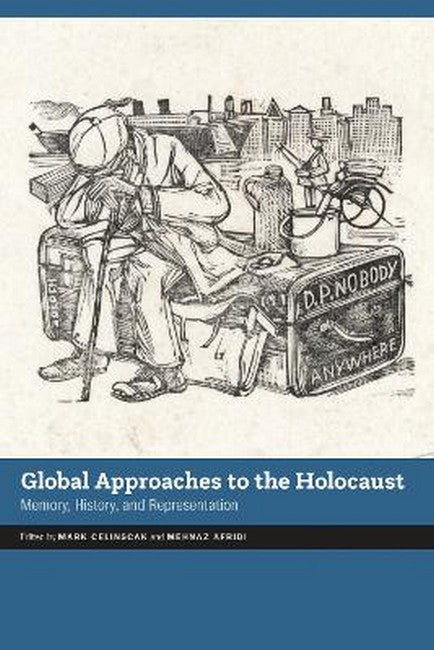Mark Celinscak is the Louis and Frances Blumkin Professor of Holocaust and Genocide Studies and the executive director of the Sam and Frances Fried Holocaust and Genocide Academy at the University of Nebraska at Omaha. He is the author of Kingdom of Night: Witnesses to the Holocaust and Distance from the Belsen Heap: Allied Forces and the Liberation of a Nazi Concentration Camp. Mehnaz Afridi is a professor of religious studies and director of the Holocaust, Genocide, and Interfaith Education Center at Manhattan University. She is the author of Shoah through Muslim Eyes.
Description
Acknowledgments Introduction: Series of Concentric Circles Mark Celinscak and Mehnaz Afridi Part 1. Memory 1. Holocaust Memory in South Africa Shirli Gilbert 2. Remembering the Holocaust in Mauritius: Legacies of Slavery, Colonial Violence, and Jewish Displacement Roni Mikel-Arieli 3. Japan and the Holocaust: Domesticating Others' Horror Rotem Kowner and Ran Zwigenberg 4. Holocaust Memory: Temporalities, Actors, and Practices in Two National Cases, Argentina and Mexico Emmanuel Kahan and Yael Siman 5. Resonances of the Holocaust in the Memory of Nazi Victims and Survivors Living in Chile Nancy Nicholls LopeandIa Part 2. History 6. From Ominous to Miracle Poems: North African Musical Prophecies and Histories of the Holocaust Aomar Boum 7. Open Doors and Open Hearts: President Manuel Quezon's Holocaust Sanctuary in the Philippines Bonnie M. Harris 8. Fort Ontario and American Debates over Refugee Admission Rebecca L. Erbelding 9. Limiting the Undesirables: Jewish Refugee Migration to Australia in 1938 and 1939 Paul R. Bartrop 10. Reviewing the Past, Re-Viewing the Nation: Early Canadian Responses to Abella and Troper's None Is Too Many Richard Menkis 11. Mexico and the Holocaust: The Contradictions of Postrevolutionary Immigration Policy Daniela Gleizer Part 3. Representation 12. Holocaust Education in South Asia: The Much-Needed Response to Holocaust Denial, Trivialization, and Inversion Navras J. Aafreedi 13. Approaches to Holocaust Education in the Arab World: Obstacles and Solutions Mohammed S. Dajani Daoudi and Zeina M. Barakat 14. "When This Happens, Whoever Can Write": The Testimonial Representation of the Holocaust in Colombia Lorena Cardona GonzAlez 15. Holocaust Education in Australia: History, Importance, and Challenges Suzanne D. Rutland 16. Aotearoa New Zealand Ann Beaglehole 17. Representing the Holocaust in a Museum Setting in Post-Apartheid South Africa and Africa Tali Nates Conclusion Mark Celinscak and Mehnaz Afridi Epilogue Mark Celinscak, Mehnaz Afridi, and Ilan Stavans Contributors Index
"This collection of essays offers a timely, thought-provoking account of the global history of the Holocaust. [Its] chapters provide groundbreaking insights not only on the impact of the Holocaust outside of Europe, most importantly through the global Jewish refugee streams it unleashed, but also on the complex Holocaust memory cultures that evolved around the world after the tragedy. Bringing together scholars from around the world, Global Approaches to the Holocaust is a crucial addition to the field of Holocaust studies."-David Motadel, associate professor of international history at the London School of Economics and Political Science "This thematically and geographically wide-ranging collection of essays is a significant contribution to the ongoing discussion about how our understanding of the Holocaust should relate to global histories of colonialism, slavery, apartheid, and migration."-Alan E. Steinweis, Raul Hilberg Distinguished Professor of Holocaust Studies at the University of Vermont "This remarkable volume offers scholars new and vibrant perspectives on the history and memory of the Holocaust from across six continents. In the process, it illuminates the myriad ways that the Holocaust continues to reverberate far beyond the lands where it occurred."-Tomaz Jardim, professor of history at Toronto Metropolitan University

